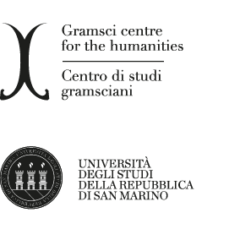The Gramsci centre for the humanities/Centro di studi gramsciani is a research centre founded in 2020.
The double header – Gramsci centre for the humanities / Centro di studi gramsciani – is not only a very free presentation of the same content in two languages. It also refers to a dual function. On the one hand, the scientific observation of Gramsci’s work, his legacy, his method; on the other hand, research on some of Gramsci’s themes – organization of cultural work; intellectuals; politics and culture… – in their current implications: in new terms. Continue reading “Welcome to the website of the Centro Gramsci of San Marino”










